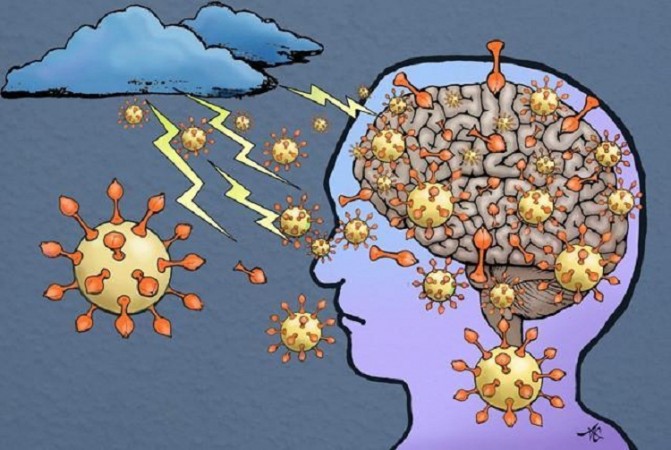
NEW YORK: A new study finding suggests that SARS-CoV-2, the virus that causes Covid-19, likely does not directly infect the brain but can still inflict significant neurological damage. The findings, published in the journal Brain, suggest that the neurological changes often seen in these patients may result from inflammation triggered by the virus in other parts of the body or the brain's blood vessels.
Researcher James E. Goldman from Columbia University says, "We've looked at more brains than other studies and we have used more techniques to search for the virus. The bottom line is that we find no evidence of viral RNA or protein in brain cells,".
For the study, the research team examined the brains of 41 patients with Covid-19 who succumbed to the disease during their hospitalization. The patients ranged in age from 38 to 97, about half had been intubated and all had lung damage caused by the virus.
To detect any virus in the neurons and glia cells of the brain, the researchers used multiple methods including RNA in situ hybridization, which can detect viral RNA within intact cells; antibodies that can detect viral proteins within cells; and RT-PCR, a sensitive technique for detecting viral RNA.
Despite their intensive search, the researchers found no evidence of the virus in the patients' brain cells. Though they did detect very low levels of viral RNA by RT-PCR, this was likely due to virus in blood vessels or lepto meninges covering the brain.
Lifestyle: Impaired Face Recognition AssociateS with social isolation
Health benefits of Himalayan salt: Study suggests It helps Reduce blood pressure and more
Lifestyle: Elderly deserve serious attention in the Covid times